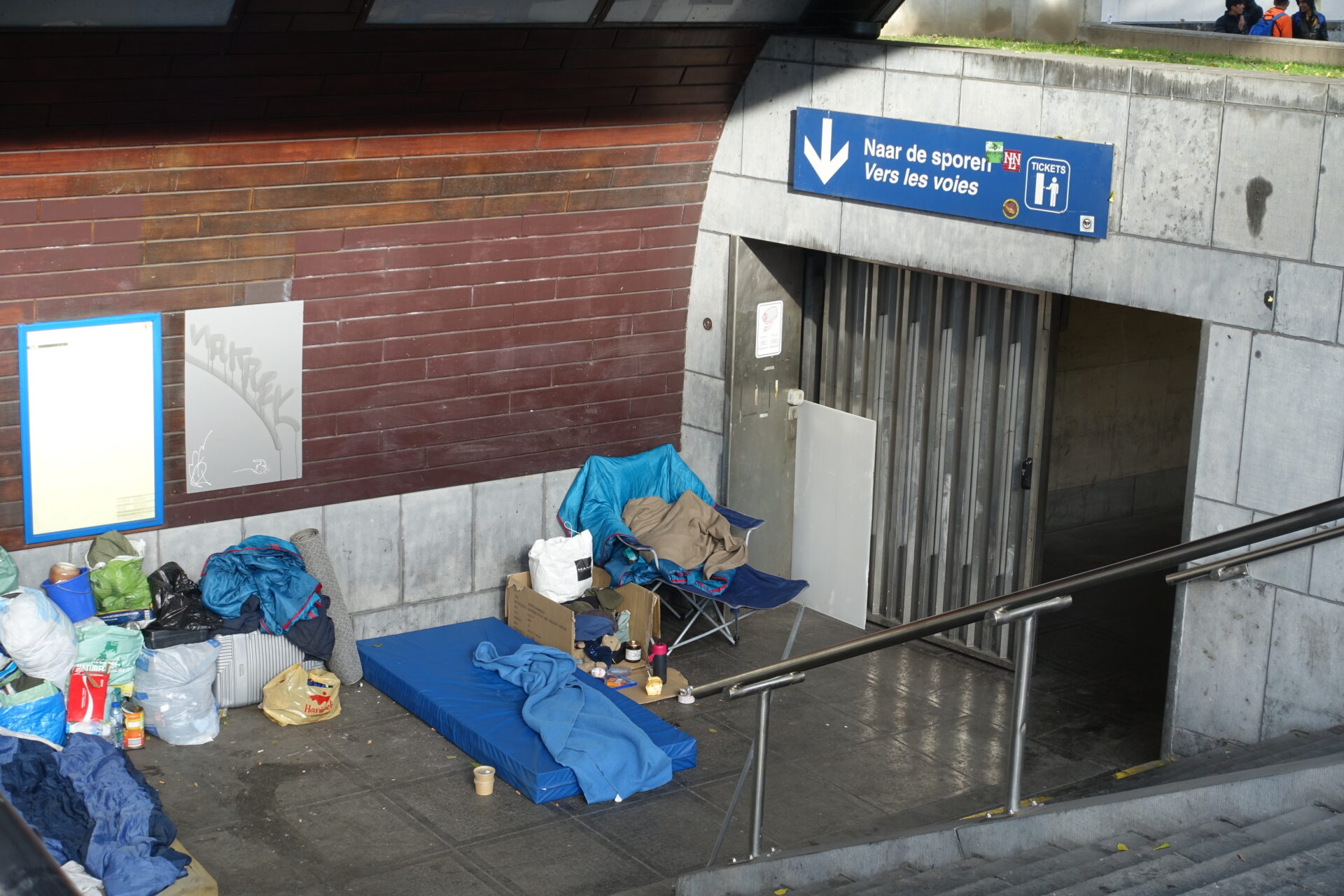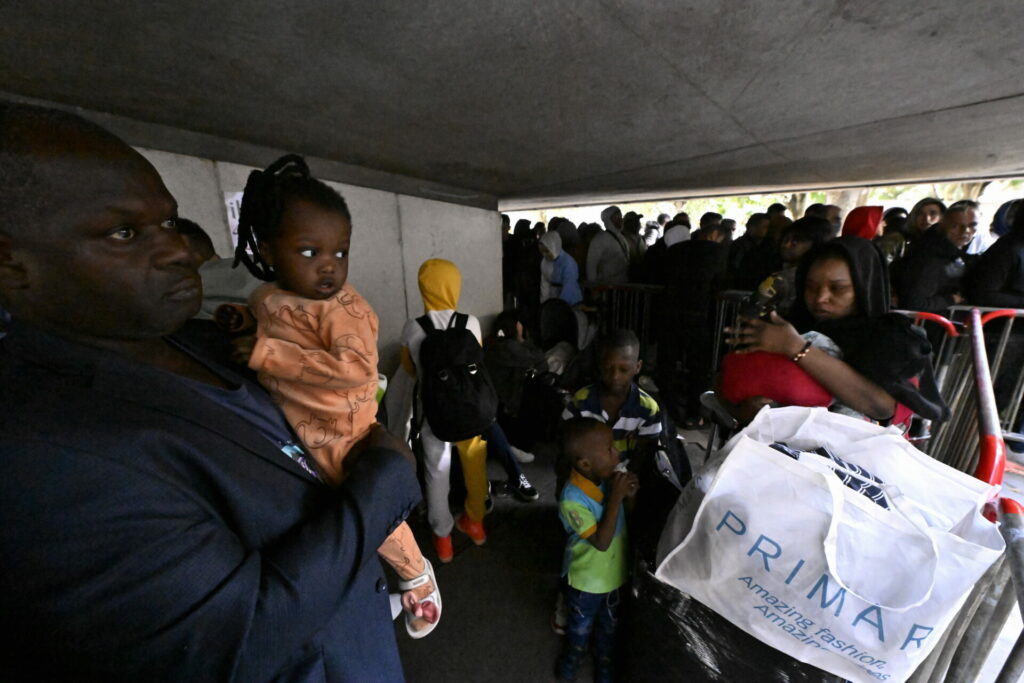Some 700 asylum seekers, including unaccompanied minors, who were rendered homeless after they were denied the reception they are legally entitled to in Belgium are instead living in a derelict building in Schaerbeek. A recent medical check highlighted the risk of a superinfection spreading here.
For months now, a humanitarian crisis has been unfolding in the centre of Brussels. Thousands of people seeking asylum in the country who are legally entitled to shelter are, whether due to an oversaturation of the reception system or a "lack of political will," left sleeping rough.
Out of despair, especially as the mercury is dropping in Belgium, some 700 asylum seekers, including minors, have been surviving in a former office building on rue des Palais in Schaerbeek, however, this too is unsuitable for housing people.
'Can't remain indifferent'
This was confirmed by a recent and unprecedented health inspection carried out in the building by the region's health inspectorate (COCOM), in collaboration with doctors, nurses and cultural mediators at the request of the municipality's mayor, Cécile Jodogne, who received the results on Wednesday evening.
"This report is very difficult to read. The examples, the photos of superinfected lesions, the presence of minors and the state of the building cannot leave one indifferent," Jodogne said, calling the results damning.
As was the case in the mobile health clinic set up by Médecins Sans Frontières (MSF) in October, doctors carrying out the large-scale medical check identified several cases of tuberculosis, "worrying" cases of cutaneous (non-respiratory clinical manifestation) diphtheria as well as a very large spread of scabies "with a risk of superinfection within the building."

Asylum seekers' shelter near the Immigration Services building. Credit: Lauren Walker
The findings also confirmed the suspected presence of additional undetected cases of tuberculosis and the increased risk of developing cases of pulmonary or respiratory diphtheria and the future occurrence of polio. In addition to infectious diseases, the doctors also expressed concern regarding the mental health of the occupants, which they noted is particularly worrying, given their background and trauma.
Aside from checking the health of the occupants, the visit also served as an opportunity to analyse the deteriorated state of the building, Jodogne explained.
The report confirms that without major construction works, health monitoring and significant material investment, the building is unsuitable for housing asylum seekers and risks worsening the already critical health situation among asylum seekers, her statement read.
Government must take responsibilities
Jodogne stressed that her frustration as a mayor is "immense," as the direct handling of the crisis is a Federal Government competency, meaning none of the possible solutions can be implemented by municipalities alone.
"Once again, I demand that the Federal Federal take its responsibilities very quickly, to avoid a deterioration in the health situation that would that it would become even more dangerous for asylum seekers," she said. The overwhelming majority of the occupants have an Annex 26 (proof they requested international protection), "which places them directly under its responsibility."
Related News
- Lawyers mourn Rule of Law as Belgium fails to observe rulings
- Asylum reception crisis: Temporary MSF clinic reveals human cost of crisis
"Only rehousing and health support organised by Fedasil would make it possible to avoid an even more chaotic situation," she added, stressing that while there is no risk for the inhabitants of the Northern Quarter at the moment, this "could change if these 700 people were forced to leave the building and live on the streets."
At the request of Jodogne, a consultation will be organised with the cabinet of Secretary of State for Migration Nicole de Moor, in the presence of regional representatives. "At this meeting, we want to obtain concrete answers regarding the rehousing of all occupants who are in the posession of an Annex 26."
Belgium's reception crisis explained
For more than a year now, hundreds of asylum seekers have been sleeping rough as a result of Belgium's failure to provide them with the shelter they are legally entitled to.
Fedasil, Belgium's Federal Asylum agency, operates several reception centres across Belgium (of which Petit Château in Brussels has become the most notorious), where people who have been granted asylum in the country should receive a bed, bath and food (or a sheltered place).
Once the rush of asylum seekers coming to the country temporarily slowed down following the migration crisis, the government reduced the number of sheltered places, closing down Fedasil centres.
Since October last year, this figure is once again increased slowly, and the government is not responding to the rise in demand for sheltered places.
Instead, it created a waiting list which prioritised minors and families with children, leaving single men to sleep on the streets, and resulting in Fedasil being convicted more than 4,500 times for failing to provide shelter.

